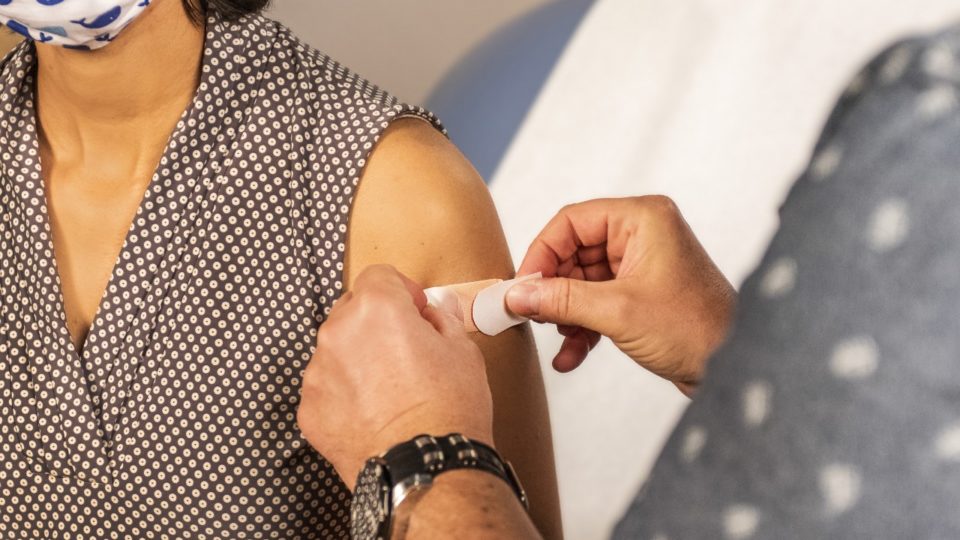Coronavirus vaccines are fairly accessible to Malaysians, as long as you have internet access. But what about immobile persons or those living in rural areas?
Malaysia has been in and out of lockdown ever since the COVID-19 pandemic landed in March 2020. Right now, the country is already in its third national lockdown as it slowly rolls out its vaccination program, starting with healthcare workers and the elderly. Only 7% of the population have so far been vaccinated since February while less than half have registered for inoculation.
Anyone can sign up for the vaccine via the MySejahtera contact tracing platform and be put on a waiting list. Just like in other countries, the vaccine priority list started with front liners. About 500,000 of them, including public and private healthcare workers as well as politicians, have taken their jabs. Next in line were the 9.4 million people aged 65 and up, as well as those with chronic illnesses or disabilities. The final phase of the vaccination will cater to the 13.7 million or more adults aged 18 and up.
On the vaccine menu, there are doses from Pfizer-BioNTech, Sinovac, and AstraZeneca – which were briefly excluded from the program due to blood clot fears stemming from rare cases reported abroad. However, the blood clot fears did little to dissuade the thousands of other Malaysians who offered themselves to the jabs under a separate rollout implemented to cut vaccine wastage. Many arrived in droves at various vaccination centers, overwhelming the registration website multiple times. Since Thursday, the AstraZeneca vaccine is back on the national program’s menu.
No internet access?
But not everyone has access to smartphones, the internet, and the MySejahtera app to register themselves for the vaccine. Despite several ongoing outreach initiatives, some might still fall through the cracks or have to wait longer than others.
In April, the Selangor state government launched ImuniSel to help those without internet access to register for vaccinations with the help of volunteers deployed to places like markets, mosques and other places of worship. Each registered person would receive a card containing a QR code and their details for verification purposes. Those left out of this initiative can still list themselves through the National COVID-19 Vaccination Registration hotline.
But it is not clear how many registrations have been made through such efforts. Last Tuesday, the federal territories minister mobilized vaccination trucks to Kuala Lumpur residents. Yesterday, the mobilized vaccination trucks went to about 1,000 residents of the Kampung Muhibbah people’s housing project in Kuala Lumpur, thanks to the MYMedic@Wilayah Vaccine Mobile Truck pioneer project.
Only one senior care center in Penang came out to say that three of its residents and five staff members were successfully vaccinated through the MyMedic program, which took a whole week to arrange.
Meanwhile, there are 577,000 persons with disabilities in Malaysia, but fewer than half are registered for the vaccine, according to Rina Harun, the Minister for Women, Family, and Community Development.
People with disabilities can reach out to the OKU Sentral non-governmental organization to have their details submitted to the Science, Technology and Innovation Ministry (MOSTI) for vaccine registration. A drive-thru vaccination center catering to people with disabilities is set to open in Klang Valley this week.
Consider paying for the vaccine?
For those who can afford, Malaysia has allowed the sale of vaccines.
Last month, Malaysian business groups cited Indonesia as an example for corporations to purchase vaccines for their workers, allowing businesses to resume while speeding up Malaysia’s vaccination program.
Selangor state launched the Selgate COVID-19 vaccination program for businesses in mid-May but did not publicly reveal which vaccines it was selling or how much they would cost. Employers were required to register their interest and wait for a quotation on the cost of the vaccines within three working days.
Meanwhile, The Malaysia Shopping Malls Association is charging retail frontliners RM50 each for two doses of the vaccine, comprising RM30 service charge for administering the jabs and RM20 to cover unspecified expenses borne by the mall. Sixty malls around Malaysia have registered for their staff to be vaccinated, the association told Coconuts today, noting that it was working with the domestic trade industry ministry on this project. Malls that have registered will have to be vetted by MOSTI and the Ministry of Health, it added.
Correction: The Malaysia Shopping Malls Association is not selling vaccines but is offering them to retail frontliners at a fee.
Other stories:
Lim Kit Siang urges amnesty for undocumented migrants after 156 detained, sprayed disinfectant
Kedah chief minister’s visit to car dealer prompts police probe into possible lockdown violation
Nearly 140,000 signed online petition calling for Azmin Ali to resign




